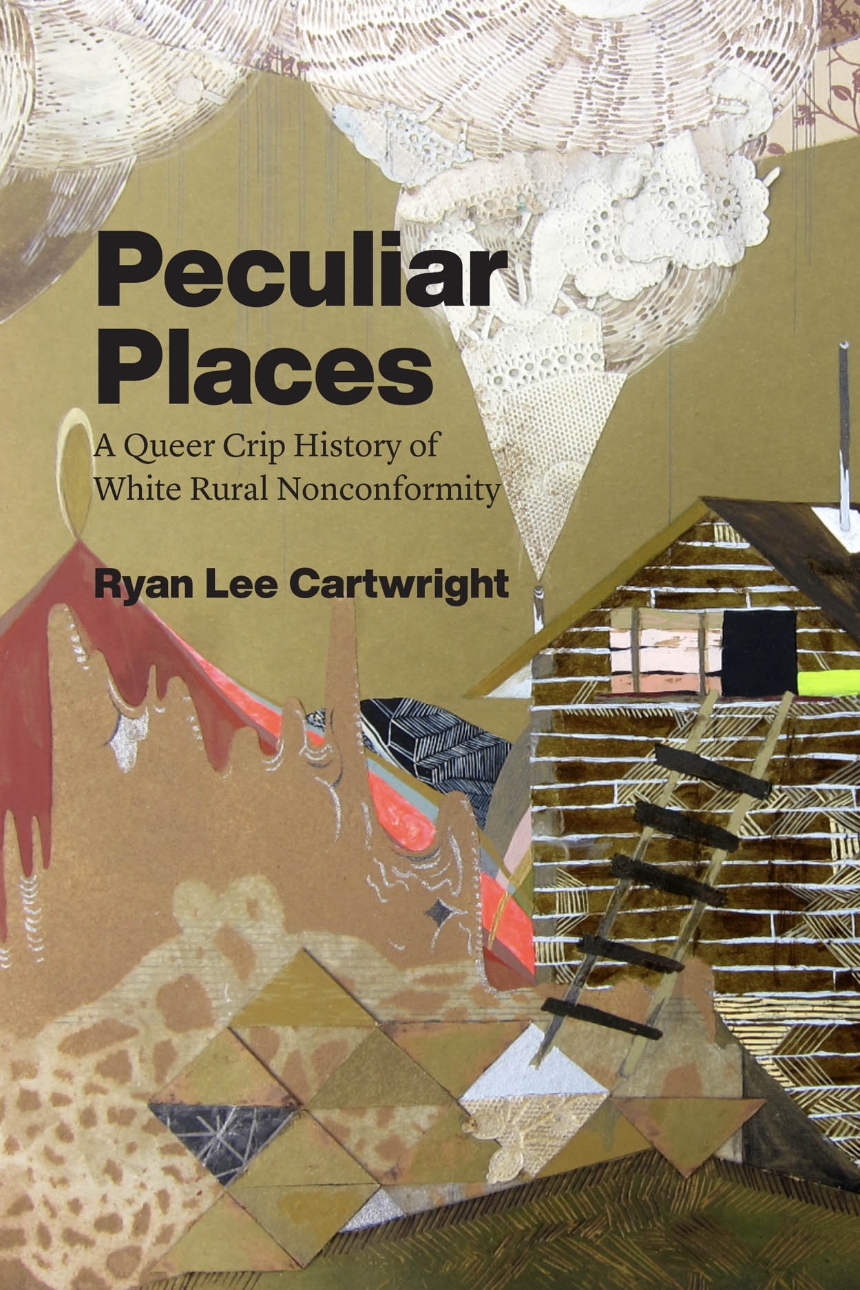Peculiar Places
A Queer Crip History of White Rural Nonconformity
9780226696881
9780226696911
9780226697079
Peculiar Places
A Queer Crip History of White Rural Nonconformity
The queer recluse, the shambling farmer, the clannish hill folk—white rural populations have long disturbed the American imagination, alternately revered as moral, healthy, and hardworking, and feared as antisocial or socially uncouth. In Peculiar Places, Ryan Lee Cartwright examines the deep archive of these contrary formations, mapping racialized queer and disability histories of white social nonconformity across the rural twentieth-century United States.
Sensationalized accounts of white rural communities’ aberrant sexualities, racial intermingling, gender transgressions, and anomalous bodies and minds, which proliferated from the turn of the century, created a national view of the perversity of white rural poverty for the American public. Cartwright contends that these accounts, extracted and estranged from their own ambivalent forum of community gossip, must be read in kind: through a racialized, materialist queercrip optic of the deeply familiar and mundane. Taking in popular science, documentary photography, news media, documentaries, and horror films, Peculiar Places orients itself at the intersections of disability studies, queer studies, and gender studies to illuminate a racialized landscape both profoundly ordinary and familiar.
Sensationalized accounts of white rural communities’ aberrant sexualities, racial intermingling, gender transgressions, and anomalous bodies and minds, which proliferated from the turn of the century, created a national view of the perversity of white rural poverty for the American public. Cartwright contends that these accounts, extracted and estranged from their own ambivalent forum of community gossip, must be read in kind: through a racialized, materialist queercrip optic of the deeply familiar and mundane. Taking in popular science, documentary photography, news media, documentaries, and horror films, Peculiar Places orients itself at the intersections of disability studies, queer studies, and gender studies to illuminate a racialized landscape both profoundly ordinary and familiar.
272 pages | 33 halftones | 6 x 9 | © 2021
History: American History
Sociology: Criminology, Delinquency, Social Control
Reviews
Table of Contents
Introduction: QueerCrip Historical Analysis and the Rural White Anti-Idyll
One: Harlots from the Hollow: Eugenic Detectives on the Lookout for the Rural White Hovel Family
Two: Curious Scenes: The Fringes of Rural Rehabilitation in 1930s Documentary Photography
Three: Madness in the Dead Heart: Ed Gein and the Fabrication of the Transgender Heartland “Psycho” Killer Myth
Four: “Maimed in Body and Spirit”: The Spectacle of White Appalachian Poverty Tours during the 1960s
Five: Banjos, Chainsaws, and Sodomy: Making 1970s Rural Horror Films and the Apex of the Anti-Idyll
Six: Estranged but Not Strangers: Nonconformity Encounters Identity in 1990s Hate-Crime Documentaries
Acknowledgments
Notes
Bibliography
Index
One: Harlots from the Hollow: Eugenic Detectives on the Lookout for the Rural White Hovel Family
Two: Curious Scenes: The Fringes of Rural Rehabilitation in 1930s Documentary Photography
Three: Madness in the Dead Heart: Ed Gein and the Fabrication of the Transgender Heartland “Psycho” Killer Myth
Four: “Maimed in Body and Spirit”: The Spectacle of White Appalachian Poverty Tours during the 1960s
Five: Banjos, Chainsaws, and Sodomy: Making 1970s Rural Horror Films and the Apex of the Anti-Idyll
Six: Estranged but Not Strangers: Nonconformity Encounters Identity in 1990s Hate-Crime Documentaries
Acknowledgments
Notes
Bibliography
Index
